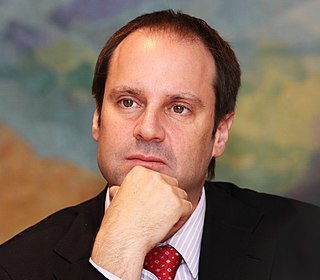A Quote by Andy Dunn
Graduating business school, I had $150,000 of debt. An investment firm offered me a steady job, but it didn't feel right. It was 2007 in Silicon Valley, and I dreamed of starting an Internet company.
Related Quotes
When I first moved to Hollywood from Silicon Valley, I had some misgivings. But I found that there were some advantages to being in Hollywood. And, in fact, some advantages to owning your own media company. And I also found that Hollywood and Silicon Valley have a lot more in common than I would have dreamed.
If I were starting now I would do things very differently. I didn't know anything. In Silicon Valley, you get this feeling that you have to be out here. But it's not the only place to be. If I were starting now, I would have stayed in Boston. [Silicon Valley] is a little short-term focused and that bothers me.
One of the great things about Silicon Valley is, irrespective of how competitive you might be with another company or how closely you might be working with that company, there's a great sort of give and take, and camaraderie from - between - some of the executives in the valley and some of the other investors in the valley.
Silicon Valley, after all, feeds off the existence of computers, the internet, the IT systems, satellites, the whole of micro electronics and so on, but a lot of that comes straight out of the state sector of the economy. Silicon Valley developed, but they expanded and turned it into commercial products and so on, but the innovation is on the basis of fundamental technological development that took places in places like this [MIT] on government funding, and that continues.
When I was in high school and college, I'd always been into websites, and when you'd read about sites and the companies and people behind them, they were always in Silicon Valley. This one's in Mountain View, this one's in Palo Alto. They're all right here. I knew I wanted to move out here, whether it was to work at Google or some other company.
I feel for young people today. When I came out of law school, yes, we were broke, we had kids, we had problems. But it was straightforward. I didn't have to say, "My God, I am $80,000 in debt, I have to get a job, I have to pay it back, my life is ruined otherwise." We were able to go forward and work toward building something new, and that's what we did. Today many lawyers are unable to feel free to be advocates.

































